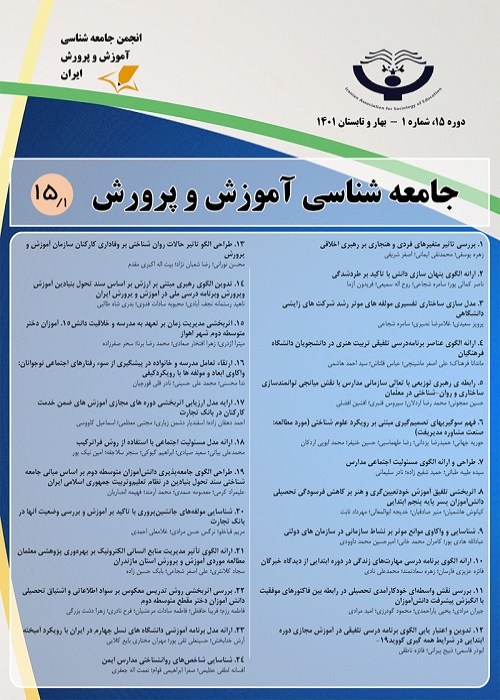Designing a Pattern on the Effect of Psychological States on the Loyalty in the Educational Organization Employees
In human capital management, the term employee loyalty is used as a key to motivate and maintain employees with higher productivity and has a significant effect on well-being, attachment and job satisfaction, employee effectiveness and organizational performance. Enthusiastic employees completely integrate with the organization and consider the organization as their identity, consider the organization's failure and success as their own failure and success, and strengthen each other in difficult and critical times, cover the organization's weak points, and in They take the path of doing impossible things.This study aimed to investigate the effect of psychological states on loyalty in the educational organization employees.
The research was applied in terms of purpose and mixed in terms of method (qualitative and quantitative). The research population in the qualitative section were education experts and psychology professors who based on the principle of theoretical saturation, 20 people were selected and interviewed by purposeful sampling and snowball. All interviews were coded by content analysis method and were analyzed by Maxqude software. In a small part of the statistical population, including staff, teachers and selected managers of education in Qazvin province in the fall of 2020 with a number of 1200 people and based on Cochran's formula 292 people were selected as a statistical sample. The validity of the questionnaire was confirmed using face and content validity. The reliability of the questionnaire was 0.92 with Cronbach's test. Data analysis was performed by inferential factor analysis with MICMAC software. Finally, Minimum Partial- Squares method and PLS software were used to validate the structural equations and model fit.
he results of the qualitative section showed that there were 64 indicators and 26 components in the form of 7 dimensions, which include: personal dimension with components (self-efficacy, resilience, self-esteem, role-playing behavior), working conditions dimension with components (supervisor support, Independence and freedom of action, professional development, job-person fit), organizational-organizational dimension with components (organizational trust, learning opportunities, reward and appreciation, identity, organizational strategies), moderating variables with Psychological components (job security, organizational interaction, personality traits, social norms), individual outcomes with components (passion, job attraction, skill level), job components (outcomes including, Job satisfaction, commitment to work, empowerment) and the dimension of organizational results including: (productivity, desirability, quality improvement, meritocracy in the organization, respect and client satisfaction) extracted have a positive effect on the loyalty of education staff. The results of a small part showed that the model had a good fit (GOF = 0.39) and the set of pattern variables could predict the loyalty variance of 0.76.
According to the research findings in the proposed pattern, it could be concluded that psychological states are one of the most important and vital factors in developing loyalty among educational organization employees. These results can provide a basis for reviewing and making fundamental changes in organizational rules.
- حق عضویت دریافتی صرف حمایت از نشریات عضو و نگهداری، تکمیل و توسعه مگیران میشود.
- پرداخت حق اشتراک و دانلود مقالات اجازه بازنشر آن در سایر رسانههای چاپی و دیجیتال را به کاربر نمیدهد.


